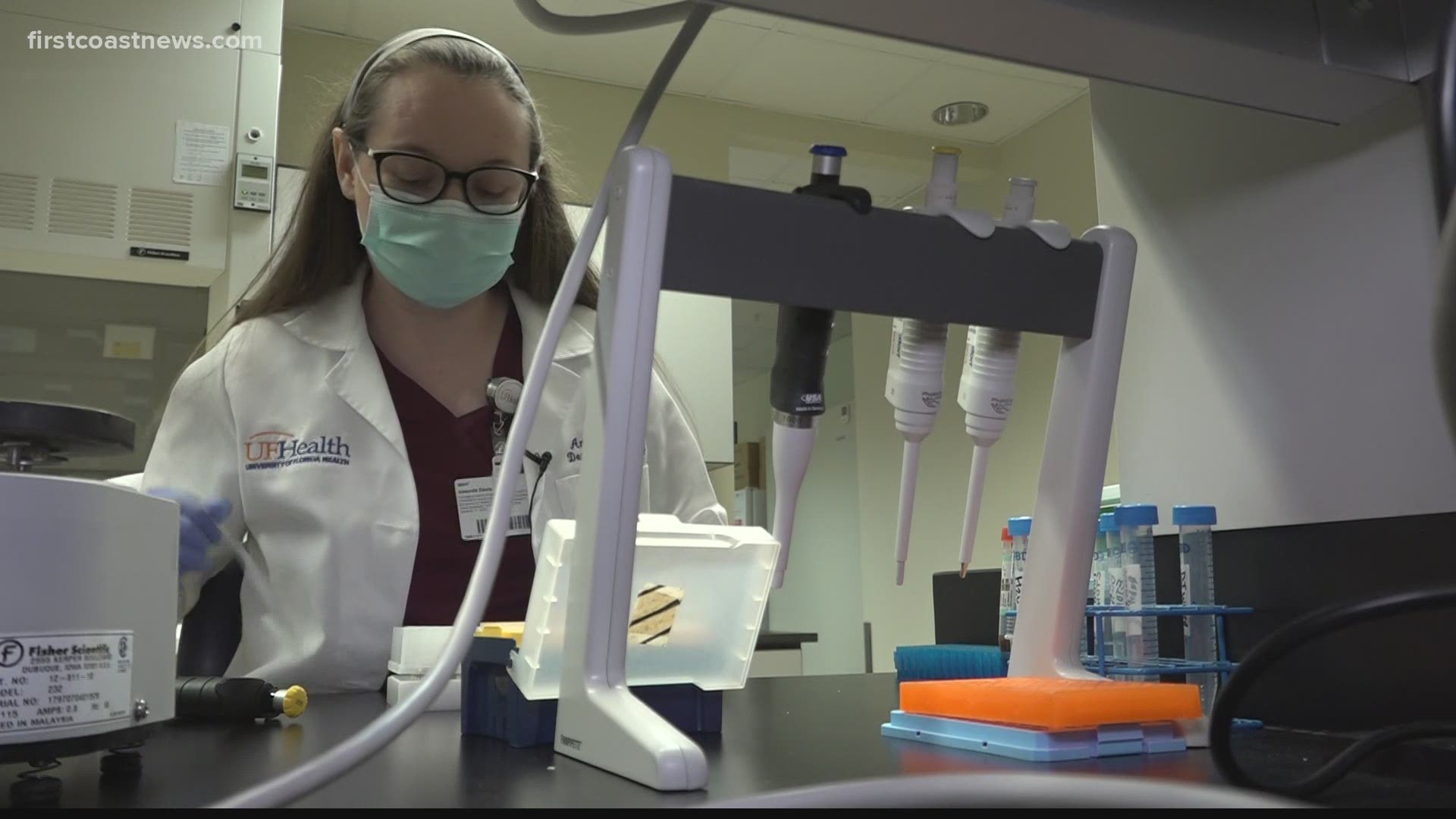JACKSONVILLE, Fla. — A big part of getting back to normal in this post-COVID world is staying ahead of variants, which can be more contagious and potentially more deadly.
UF Health Jacksonville is using state-of-the-art technology to identify emerging variants, and they say the health system is the first on the First Coast to do so.
“What we’ve been doing is sequencing the genomes of the COVID samples of our patients at the hospital here," said Dr. Brett Baskovich, director of molecular pathology at UF Health Jacksonville.
UF Health has found 13 different variants in 62 different patients, with the U.K. variant being the most common. It's all done through gene sequencing.
“The first step is to start with the actual virus that we have from the patient samples and extract the RNA. It’s an RNA virus as opposed to DNA," Baskovich said. “Once that’s done, we have a set of primers that basically let us amplify the genome, the viral genome, as opposed to the human cells in the areas we’re interested in.”
They then bring the sample to a machine, where it's sequenced, and then doctors interpret it to see if a patient has a variant, and if so, which one it's most similar to.
Researchers say the technology will help not just monitor COVID-19 variants but prepare for them.
“That’ll kind of give us a heads up as far as if we need to be more cautious and if people potentially are going to need different vaccines or booster shots," Baskovich said.
“I think it’s really important with any infectious disease to know how it acts, how it moves, what it does," said Dr. Yvette McCarter, director of the clinical microbiology lab at UF Health.
UF Health first used the technology to help cancer patients.

